Monday, Apr 21, 2025 | 11:30 AM - 02:30 PM
Location: Meeting Halls A&B HQ1-3-430A&B

OVERVIEW
As capital markets continue to grow and evolve, their importance for financial stability has never been more critical. The increasing reliance on market-based finance underscores the need for robust discussions among regulators, industry experts, and stakeholders. The upcoming conference marks the second IMF-IOSCO conference dedicated to these pressing themes, delving into the transformative role of artificial intelligence (AI) in capital markets and the ongoing shift from traditional investment vehicles to Exchange Traded Funds (ETFs).
The conference will feature distinguished speakers, including Ms. Gita Gopinath, First Deputy Managing Director of the IMF, and Mr. Jean-Paul Servais, Chair of IOSCO, who will deliver the opening and closing remarks. Senior panelists from both industry and policy sectors will engage in discussions on key trends in AI and ETFs focusing on implications for financial stability. Additionally, a fireside chat will take place between Mr. Mark Uyeda, Acting Chair of the US SEC and Mr. Tobias Adrian from the IMF, providing valuable insights into regulatory perspectives within the US markets.
OPENING REMARKS by Ms. Gita Gopinath, First Deputy Managing Director, IMF
(11:30 – 11:35, 5 minutes)
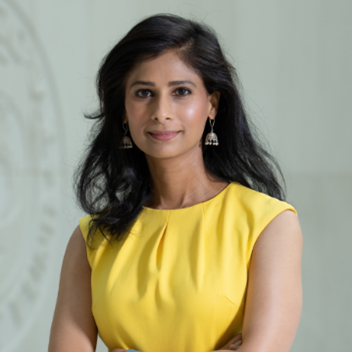
Gita Gopinath
First Deputy Managing Director, IMF
Gita Gopinath is the First Deputy Managing Director of the International Monetary Fund (IMF). She oversees the work of staff, represents the Fund at multilateral forums, leads the Fund’s work on surveillance and related policies, and oversees research and flagship publications. Ms. Gopinath previously served as the Chief Economist of the Fund. In that role, she helmed thirteen releases of the World Economic Outlook. She co-authored the “Pandemic Paper” on how to end the COVID-19 pandemic that set globally endorsed targets for vaccinating the world and led to the creation of the Multilateral Task Force made up of the leadership of the IMF, World Bank, WTO, and the establishment of a working group with vaccine manufacturers to accelerate delivery of vaccines to low-income countries. She also worked with other Fund departments on a new analytical approach to help countries respond to international capital flows via the Integrated Policy Framework. She also helped set up a Climate Change team inside the IMF to analyze optimal climate mitigation policies. Prior to joining the IMF, Ms. Gopinath was the John Zwaanstra Professor of International Studies and of Economics at Harvard University and before that she was an assistant professor of economics at the University of Chicago’s Booth School of Business. Her research, which focuses on International Finance and Macroeconomics, is widely cited and has been published in many top economics journals. She has authored numerous articles on exchange rates, trade and investment, international financial crises, monetary policy, debt, and emerging market crises.
PANELS & FIRESIDE CONVERSATION
Panel 1: Trends in Artificial Intelligence and Implications for Financial Stability (11:35-12:40, 1 hour 5 minutes)
As innovations in artificial intelligence (AI) continue to transform various sectors, their potential impact on securities markets should not be overlooked. Recent generative AI and related breakthroughs have the potential to dramatically change capital markets functioning through AI–assisted process automation and analysis of complex unstructured data as well as through the greater and more powerful use of algorithmic trading and novel trading and investment strategies. In addition, on one hand, generative AI can enhance market analysis, risk assessment, and customer engagement through sophisticated simulations and data generation. On the other hand, generative AI also raises concerns about financial stability, data integrity, potential misuse for market manipulation, and the ethical implications of AI-generated content. This panel will discuss these innovations and what work is being done to ensure they can be harnessed responsibly.
MODERATOR
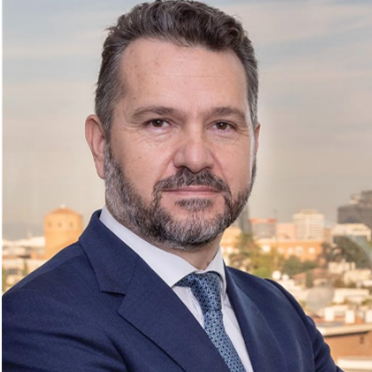
Rodrigo Buenaventura
Secretary-General, IOSCO
Rodrigo Buenaventura became Secretary General of IOSCO in January 2025.
Previously, he served four years as Chair of the Spanish financial markets regulator, CNMV, until December 2024, and as such was a member of the ESMA and IOSCO boards. Rodrigo chaired several policy committees within ESMA (Investor Protection, Market Integrity and Markets) and IOSCO (Sustainable Finance Tark Force).
Previously, he developed a career in financial markets regulation and supervision, starting at CNMV in 2005 as Head of International and then Secondary Markets, joining the then newly created ESMA as its first Head of Markets (2011 to 2017) and then back at CNMV as Director General for Markets until 2020. He specialized in post-trading, market abuse supervision, corporate reporting, market structure and corporate governance.
After graduating in Economics in Madrid, he spent the first eleven years of his career (1993-2004) in the private sector at a leading Spanish financial consulting company (AFI), focusing on asset and liability management, securities issuance, debt management, rating advice and public finance.
SPEAKERS
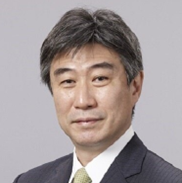
Shigeru Ariizumi
Vice-Minister for International Affairs, Financial Services Agency (FSA), Japan
ARIIZUMI Shigeru is Vice Minister for International Affairs of the Japan Financial Services Agency (JFSA). He plays leading roles in various international fora. He is a member of the FSB Plenary and also serves as Chair of the Executive Committee of the IAIS, as well as the Vice Chair of the Board of IOSCO.
Before assuming his position in July 2023, he held key positions at the Japanese Ministry of Finance (JMOF) and the JFSA. At the JMOF, he worked as G7/G20 Deputies’ Deputy in the Finance Track and also supervised Japan’s relationship with the IMF and the World Bank. At the JFSA, he led the team under Japan’s G20 Presidency in 2019. He also has extensive experience in supervision, holding senior management positions in all banking, securities and insurance.
He holds a bachelor’s degree in law from the University of Tokyo and a master’s degree from the Harvard Law School. He has passed the bar in Japan and the United States and is a registered attorney in the State of New York.
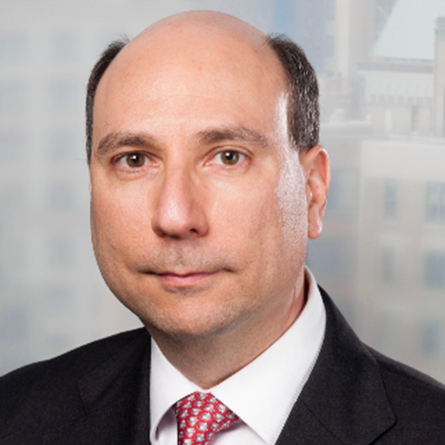
Gregg Berman
Managing Director, Market Analytics and Regulatory Structure, Citadel Securities
Mr. Berman is managing director of the market analytics and regulatory structure unit of Citadel Securities in Chicago where he focuses on utilizing data and analytics to better inform on a host of advanced topics at the crossroads of market structure, rules, and regulations. Mr. Berman is an active participant on several advisory boards, including the Economics Advisory Committee of FINRA, the Advisory Board of the Financial Information Forum, and the Advisory Committee of the Consolidated Audit Trail. From 2009 to 2015, Mr. Berman served at the U.S. Securities and Exchange Commission in Washington, DC, where he established and was associate director of the office of analytics and research in the division of trading and markets covering a wide array of topics, including: equity and options market structure, the consolidated audit trail, exchange-traded products, the Volcker Rule, and security-based swaps. Mr. Berman is a physicist by training and holds degrees from Princeton University (Ph.D. 1994, M.S. 1989), and the Massachusetts Institute of Technology (B.S. 1987).
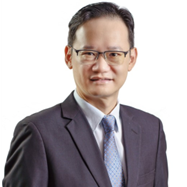
Tuang Lee Lim
Assistant Managing Director, Monetary Authority of Singapore (MAS)
Mr. Lim Tuang Lee is the Assistant Managing Director of the Capital Markets Group, overseeing the regulation and supervision of capital markets. The group is responsible for the licensing and supervision of exchanges, clearing houses and capital markets intermediaries, including financial advisers.
Mr. Lim represents MAS at various international committees, including the International Organisation of Securities Commissions (IOSCO). He currently chairs the IOSCO FinTech Task Force, which among others, looks into issues related to crypto-assets, decentralised finance (DeFi), and RegTech/SupTech.
Mr. Lim has a Bachelor of Accountancy (First Class Honours) from the Nanyang Technological University and a Master degree in Finance (with specialisation in Risk Management and Financial Engineering) from the Université de Lausanne, Switzerland. He also holds an Executive Master of Change from INSEAD.
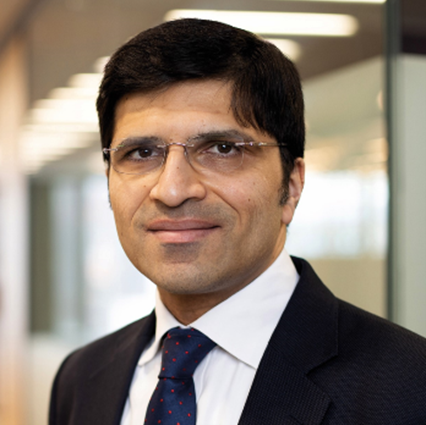
Nikhil Rathi
CEO, Financial Conduct Authority (FCA), UK and Co-Chair, IOSCO Financial Stability Engagement Group
Nikhil was appointed Chief Executive of the FCA on 1 October 2020. He began his career in HM Treasury before serving as Private Secretary to the Prime Minister between 2005 – 2008. Nikhil then became Head of the Financial Stability Unit, overseeing a number of the UK’s financial stability interventions before becoming HM Treasury’s Director of the Financial Services Group from 2009 – 2014. In that role, he also served as the UK representative to the EU Financial Services Committee. Nikhil joined the London Stock Exchange (LSE) in 2014, and was appointed CEO in 2015. Nikhil holds a BA in philosophy, politics and economics from the University of Oxford.
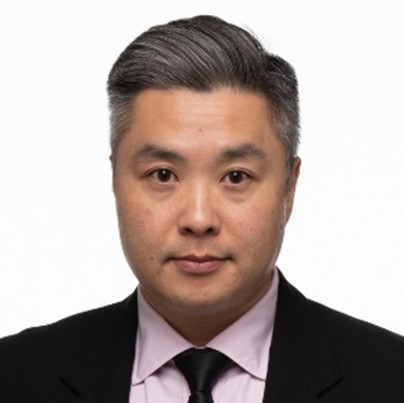
Jason Wu
Assistant Director, Monetary and Capital Markets Department, IMF
Jason Wu is the Assistant Director overseeing the Global Markets Analysis division at the International Monetary Fund. Prior to joining the IMF, Jason was an Associate Director in the Division of International Finance at the Federal Reserve Board, overseeing the Global Financial Flows, Global Financial Institutions, and International Financial Stability groups. Between 2018 and 2021, Jason was the Head of Economic Research and later the Head of Credit Risk and Banking Statistics at the Hong Kong Monetary Authority. From 2007 to 2018, Jason held positions in the divisions of Monetary Affairs and Supervision and Regulation at the Federal Reserve Board. He holds a PhD in economics from the University of Wisconsin-Madison and has published research on monetary policy transmission, banking, capital flows, and econometrics in various academic journals.
FIRESIDE CONVERSATION (12:40 – 13:10, 30 minutes)
SPEAKERS
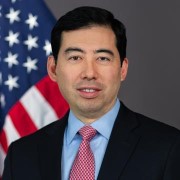
Mark Uyeda
Acting Chairman, Securities and Exchange Commission, USA
Mark T. Uyeda was sworn into office as a Commissioner of the U.S. Securities and Exchange Commission on June 30, 2022, after being confirmed by the U.S. Senate. He was sworn in for a second term as Commissioner on December 28, 2023, after being confirmed by the U.S. Senate for a five-year term expiring in 2028.
Prior to becoming Commissioner, he served as an SEC detailee to both the legislative and executive branches, most recently as securities counsel to Ranking Member Pat Toomey on the U.S. Senate Committee on Banking, Housing, and Urban Affairs. Commissioner Uyeda also served on detail as a policy advisor to senior leadership at the U.S. Department of the Treasury in 2017-2018 and the U.S. Department of Labor in 2020. Commissioner Uyeda has been with the SEC since 2006, serving as Senior Advisor to Chairman Jay Clayton, Counsel to Commissioners Michael S. Piwowar and Paul S. Atkins, and Assistant Director and Senior Special Counsel in the Division of Investment Management.
Before joining the SEC, Commissioner Uyeda served as Chief Advisor to the California Corporations Commissioner, the state’s securities regulator, having been appointed by Governor Arnold Schwarzenegger in 2004. Earlier in his career, he worked as a corporate and securities attorney at Kirkpatrick & Lockhart (now K&L Gates) in Washington, D.C. and O’Melveny & Myers in Los Angeles.
Commissioner Uyeda earned his bachelor's degree in business administration from Georgetown University in 1992 and his law degree with honors from Duke University in 1995. He is the first Asian-Pacific American to serve as a Commissioner at the SEC.
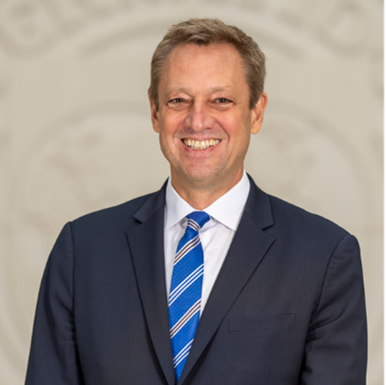
Tobias Adrian
Financial Counsellor and Director of Monetary & Capital Markets Department, IMF
Tobias Adrian is the Financial Counsellor and Director of the Monetary and Capital Markets Department of the International Monetary Fund (IMF). In this capacity, he leads the IMF’s work on financial sector surveillance, monetary and macroprudential policies, digital money, financial regulation, bank resolution, debt management, capital markets, and climate finance.
He also oversees capacity building activities in IMF member countries with regard to the supervision and regulation of financial systems, bank resolution, central banking, monetary and exchange rate regimes, central bank digital currency, nd debt management.
Prior to joining the IMF, Mr. Adrian was a Senior Vice President of the Federal Reserve Bank of New York and the Associate Director of the Research and Statistics Group. At the Federal Reserve, he contributed to monetary policy, financial stability policies, and to crisis management. Mr. Adrian has published extensively in economics and finance journals. His research spans macro-finance, monetary policy, financial stability, and climate finance, with a focus on aggregate consequences of capital markets developments.
He has taught at Princeton University and New York University. He is member of the editorial boards of the International Journal of Central Banking and the Annual Review of Financial Economics. Mr. Adrian holds a Ph.D. from the Massachusetts Institute of Technology in Economics, an MSc from the London School of Economics in Econometrics and Mathematical Economics, a Diplom from Goethe University Frankfurt and a Maîtrise from Dauphine University Paris. He received his Abitur in Literature and Mathematics from Humboldtschule Bad Homburg.
BREAK (13:10-13:15, 5 minutes)
Panel 2: Mutual Funds to ETFs? Implications for Financial Stability and Price Discovery (13:15- 14:20, 1 hour 5 minutes)
The investment landscape is shifting away from open-ended funds towards Exchange Traded Funds. From being a pure passive product, the ETF industry has rapidly expanded its footprint into the active space in the last few years, for example, a recent wave of conversions of mutual funds to ETFs. The ETF has also become a popular vehicle for innovative products such as private credit ETFs, leveraged ETFs, among others, with a significantly different profile from traditional ETFs. This broader trend may have implications on market functioning, particularly from a liquidity perspective given evolution in the product design of ETFs and compared to open-ended funds. This panel will discuss these market shifts and reasons thereof, focusing on liquidity implications and what risks regulators and market participants should consider as the trend continues to develop.
MODERATOR
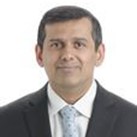
Jay Surti
Chief, Financial Supervision & Regulation Division, IMF
Jay Surti heads the IMF’s Financial Supervision & Regulation division, holding responsibility for management and execution of the IMF’s work program in these areas, covering policy, surveillance, and capacity development. His previous responsibilities at the IMF include management of the work program on supervision and regulation of NBFI and capital markets; leading the thematic chapters of the Global Financial Stability Report; and as advisor to the IMF’s Financial Counsellor, the coordination of his work program and outreach.
He has participated in several FSAPs, including as the IMF mission chief for the ongoing Spain FSAP and for the 2018 Tanzania FSAP. Jay represents the IMF at the FSB’s Standing Committee on Standards Implementation and IOSCO's Commitee on Emerging Risks.
During 2018-20, on leave from the IMF, Jay served as special advisor to the Governor of the Reserve Bank of India, advising top management there on macro-financial stability and financial supervision issues. Jay holds a Ph.D. in economics from Boston University.
SPEAKERS
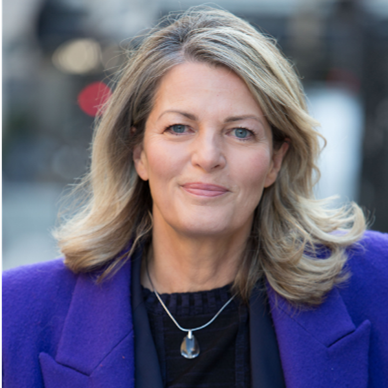
Marie-Anne Barbat Layani
Chair, Autorité des Marchés Financiers (AMF), France and Co-Chair, IOSCO Financial Stability Engagement Group
Marie-Anne Barbat-Layani is Chair of the Autorité des Marchés Financiers.
Her appointment came after a 30-year career in finance. Inspector General of Finance, she is a graduate of the Paris IEP and the ENA (1993). Between 1993 and 2007, she held various positions at the DGT (French Treasury), the Permanent Representation of France to the EU and the office of the Finance Minister. From 2007 to 2010, she was Deputy CEO of the Fédération Nationale du Crédit Agricole. She was appointed Deputy Director of the Prime Minister's Office from 2010 to 2012. From 2014 to 2019, she headed the French Banking Federation. Between 2019 and 2022, she was Secretary General of the Ministry of the Economy and Finance.

Samara Cohen
Senior Managing Director, Chief Investment Officer of ETF and Index Investments, BlackRock
Samara Cohen, Senior Managing Director, is BlackRock’s Chief Investment Officer of ETF and Index Investments and a member of the firm’s Global Executive Committee (GEC).
As CIO for ETF and Index Investments, Samara leads the teams delivering the market quality and investment integrity of roughly $7.8 trillion of BlackRock’s index funds and iShares ETFs. Encompassing portfolio managers, risk managers, platform architects, and market structure developers, her teams continuously pursue better ways for clients to access expanding investment opportunities and seek to lead in the modernization of the indexing industry and ETF markets. Samara is a member of the GEC Investment Subcommittee and the GEC Talent Subcommittee. She is also the GEC sponsor for BlackRock’s Women’s Initiative & Allies Network (WIN) and Co-Head of the Global Diversity, Equity, and Inclusion Steering Committee.
Prior to rejoining BlackRock in 2015, Samara was a Managing Director in the Securities Division of Goldman Sachs, where she built and led the Global Market Transition team to develop and deliver solutions to clients in the evolving market structure and regulatory environment following the 2008 global financial crisis. Samara first joined BlackRock in 1993 as an analyst in the Institutional Client Business. Samara has been recognized for her leadership in the financial services industry. In
2023 and 2024, Samara was named one of American Banker’s Most Powerful Women in Finance. She has been honored as one of Barron’s Most Influential Women in U.S. Finance for the past four consecutive years. In 2025, she received the Women’s Bond Club Merit Award for her outstanding contributions to the industry. She is a member of the Board of the Directors for the Securities Industry Financial Markets Association (SIFMA), and a member of the Board of the BlackRock Foundation.
She earned a BS Econ in Finance from the Wharton School and a BA in Theatre Arts from the College of Arts and Sciences of the University of Pennsylvania. She earned an MBA from Harvard Business School.

Verena Ross
Chair, European Securities and Markets Authority (ESMA)
Verena Ross is the Chair of the European Securities and Markets Authority (ESMA). She took up the role on 1 November 2021 and is responsible for representing the Authority as well as preparing the work of and chairing its Board of Supervisors and Management Board. Between 2011 and 2021 Verena Ross served as ESMA’s first Executive Director, when she was responsible for building up the organization and overseeing its day to day running. Prior to this, Verena held a number of senior posts in the UK's Financial Services Authority (FSA) and was a member of the FSA's Executive Committee. Verena joined the FSA in 1998 to run the Executive Chairman’s office during the regulator’s start-up phase and was briefly a seconded advisor to the Hong Kong Securities and Futures Commission in 2000. She held various positions in the FSA’s Markets Division and was Director of Strategy & Risk Division before becoming Director of the International Division. Verena is a German national. Following studies in Sinology and Economics in Hamburg, Taipei and London (SOAS) she began her career at the Bank of England in 1994, where she worked as an economist and banking supervisor.

Yao Zeng
Assistant Professor of Finance, Wharton, University of Pennsylvania
Yao Zeng is an Assistant Professor of Finance and the Cynthia and Bennett Golub Endowed Faculty Scholar at the Wharton School, University of Pennsylvania. Zeng's expertise lies at the intersection of asset pricing and corporate finance, emphasizing financial intermediation and financial stability risks. His research delves into the interactions between banks and diverse non-banks such as mutual funds, ETFs, and various FinTech companies. His work has been published in leading journals like the Journal of Finance, the Journal of Financial Economics, and the Review of Financial Studies. In addition to his academic contributions, Zeng is a policy consultant for numerous central banks, including the New York and Philadelphia Federal Reserve, the Financial Stability Board, the Central Bank of Brazil, and the Reserve Bank of India. He receives the Wharton MBA Teaching Excellence Award in both 2021 and 2022. Zeng received a Ph.D. in Economics from Harvard University.
CLOSING REMARKS by Mr. Jean-Paul Servais, Chair of IOSCO Board
(14:20-14:25, 5 minutes)
GROUP PHOTO (14:25-14:30, 5 minutes)
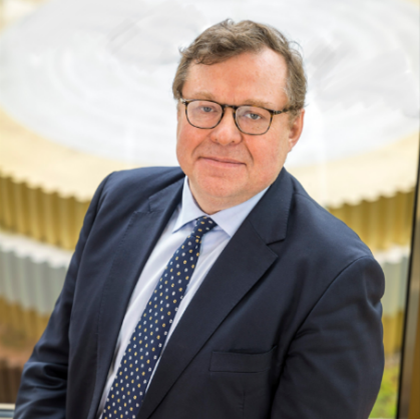
Jean-Paul Servais
Chairman of the International Organization of Securities Commissions (IOSCO)
Jean-Paul Servais is the Chairman of the International Organization of Securities Commissions (IOSCO). He was elected in October 2022 and re-elected in May 2024 for another term of 2 years. IOSCO is the membership organization composed of the world’s financial markets regulators involved in the supervision of 95 % of the financial sector at international level. He is also the Chairman of the IOSCO European Regional Committee.
Jean-Paul Servais is the first Belgian to be elected Chairman of IOSCO. His election was partly in recognition of his efforts and the quality of his work during the six years in which he was already vice-chairman of IOSCO. As IOSCO Chairman, he helped bring about major international breakthroughs in the regulation of crypto currencies and in introducing reporting standards on sustainability.
Between 2017 and 2023, Mr. Servais chaired the IFRS Foundation Monitoring Board, which consists of global financial regulators and provides oversight to the IFRS Foundation. In parallel, he was the co-chair of the Monitoring Group (2021-2023), a group of international financial institutions and regulatory bodies committed to advancing the public interest in areas related to international audit standard setting and audit quality. Within IOSCO, Jean-Paul also led the SPAC network, which successfully delivered a final report in May 2023. He has been also elected as Chair of the OECD Corporate Governance Committee.
Besides his international responsibilities, Mr Servais is the Chairman of the Belgian Financial Services and Markets Authority (FSMA). In this capacity, he is a board member of other international supervisory bodies for the financial sector such as the European Securities and Markets Authority (ESMA), and the European Systemic Risk Board (ESRB). Besides, he sits on a number of supervisory colleges that coordinate the (cross-border) supervision of financial institutions and infrastructures.
Through these experiences Jean-Paul has accrued a unique blend of supervisory expertise and regulatory acumen in the field of international financial services. Jean-Paul is known for his commitment towards investor protection. Beyond his thorough understanding on the functioning of traditional financial services and markets, Jean-Paul is an engaged and influential figure on sustainable finance and digital regulatory agendas.
Also based on his experiences as a supervisor and from his passion for education, Jean-Paul Servais had become imbued with the importance of financial education. He therefore requested and obtained from the Belgian legislator the power for the FSMA to contribute to the financial education of the population. Under his impetus, the FSMA launched in 2013 the now very successful Wikifin financial education programme. And in 2020, the Wikifin Lab opened in Brussels. This unique centre for financial education has since welcomed thousands of Belgian students and has become a reference at international level.
Jean-Paul teaches at the Université Libre de Bruxelles (ULB, University of Brussels), where he is part-time professor in International Business Law and in the specialised Master in Tax Law. He is author or co-author of more than 500 contributions, mostly engaging on European and international systems of financial supervision and regulation issues.